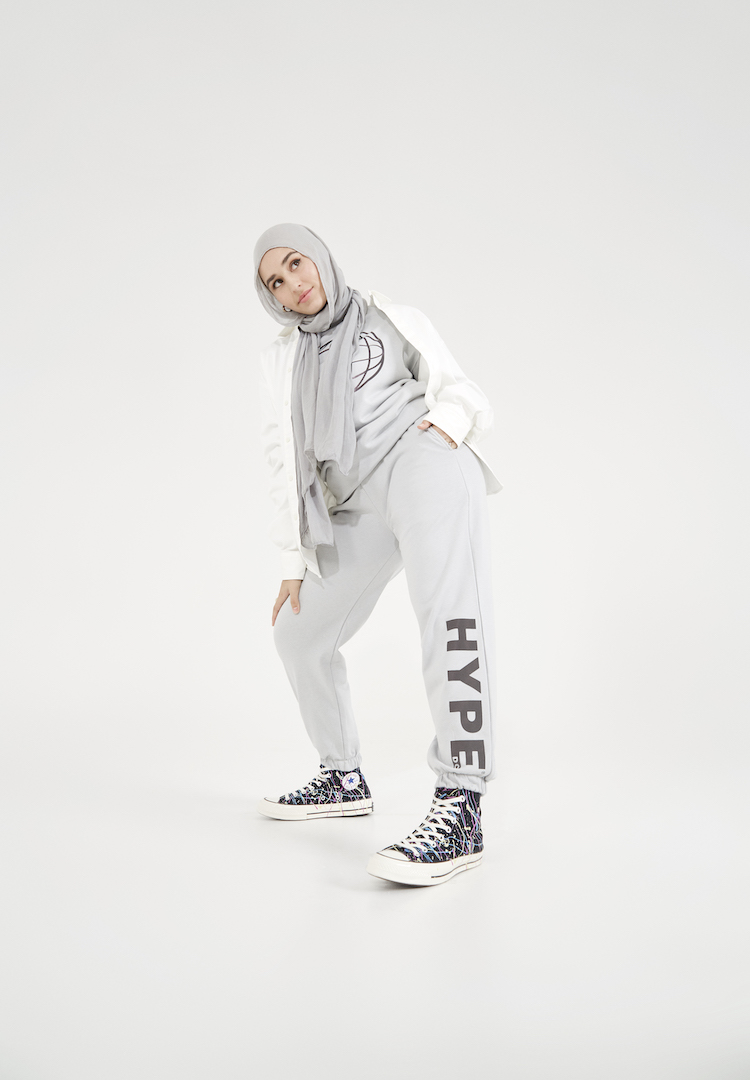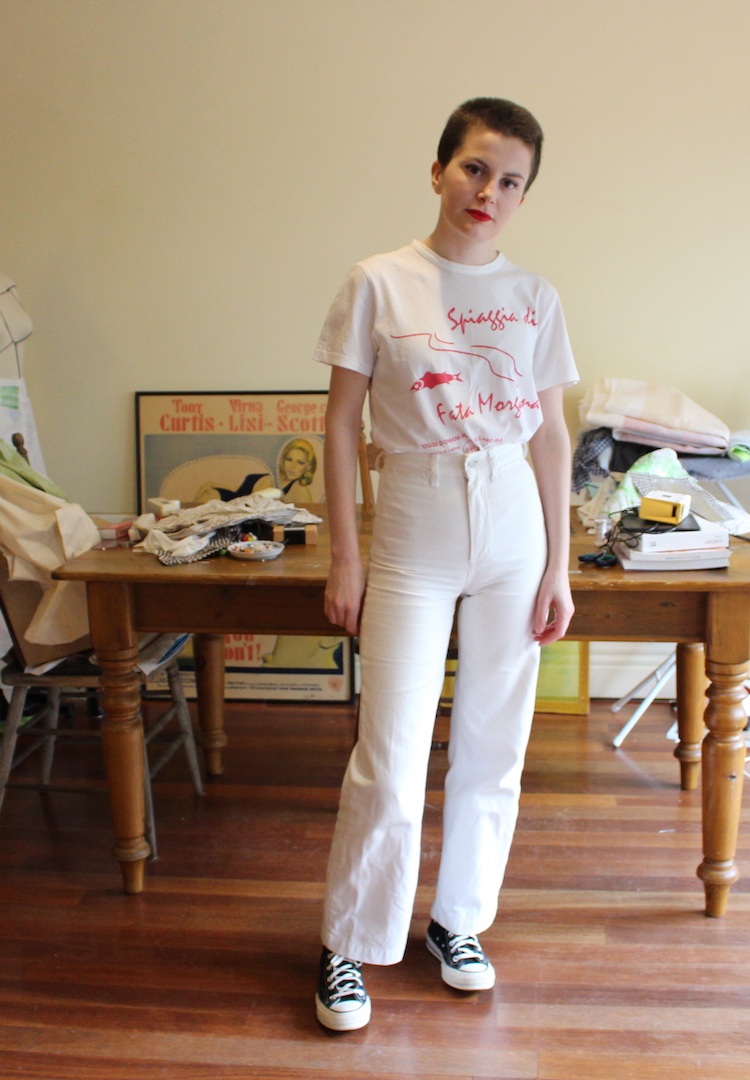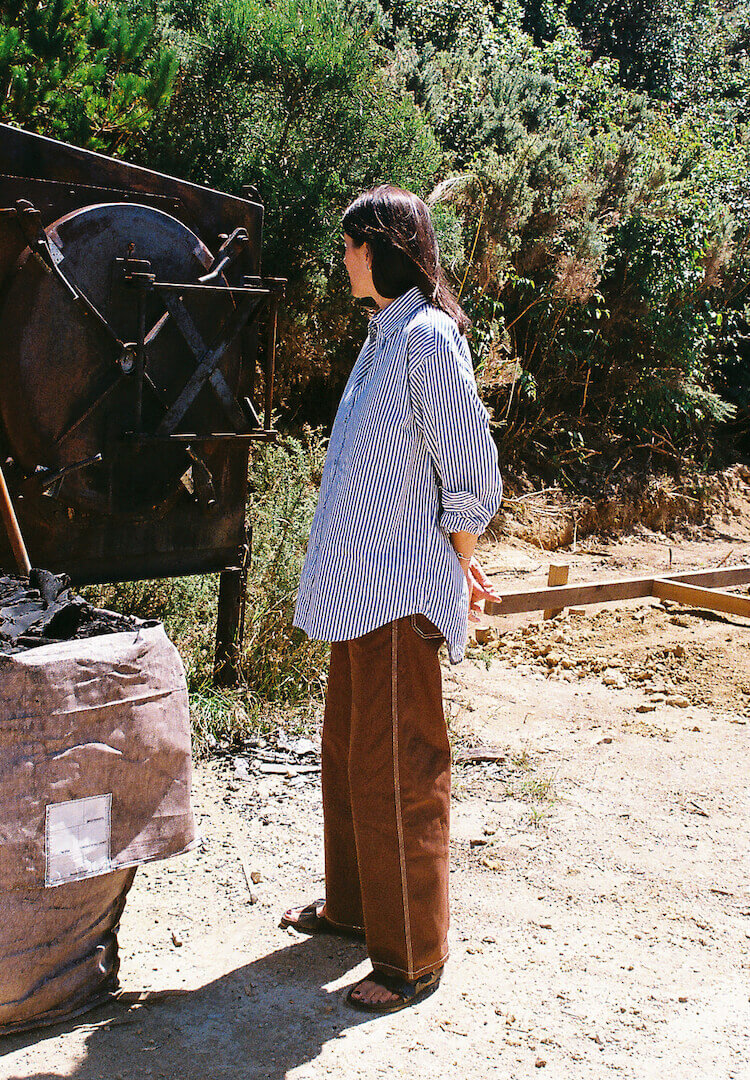Why it’s time to normalise stains on clothing
IMAGE VIA E NOLAN
WORDS BY TIFFANY FORBES
Because being pressed about a guac stain on your shirt is just not worth it.
If you’re anything like me, a trip to Guzman Y Gomez often tends to end in a similar fashion every time: with a guac stain smack bang in the middle of my favourite top. And I can assure you, I am still yet to leave any formal event with my dress unscathed by gravy from the main course and berry coulis from the last. But that’s just life, isn’t it?
With world peace and gender equality on the line, what I want to know is why I’ve been conditioned to give a singular stain on my shirt the power to ruin my day? And why do I suddenly feel unkempt when a blob of ketchup decides to mark its territory on my new sweater?
Looking for other thought-provoking reads? Subscribe here and we’ll send them straight to your inbox.
It’s not a well-kept secret that eating can be messy, people can be clumsy and life can be dirty. So why do we hold ourselves to impossible standards to be kept stain-free at all times?
When I first brought this topic of conversation up with my friends, I was met with blank looks, awkward side-eyes and the classic “I’ve never once considered this in my life before, Tiffany.” And I’m not surprised if you’re staring at your screen right now thinking the same thing.
My stain journey only started recently too, when an innocent Instagram browse later turned into a 2am research spiral, after I saw an influencer had called on her followers to normalise stains on clothing.
I remember thinking, ‘Damn she’s definitely onto something, why is no one else talking about this?’ The post highlighted the unsustainable nature of washing your clothes for the sake of a singular stain, despite the garment not even needing it.
As someone who is quite passionate about sustainable textile consumption and the circular economy, it’s easy to simply shop preloved, rewear what you can, cull all that is fast fashion and then fall asleep at night calling yourself Greta Thunberg. Yet something as seemingly insignificant as how often you wash your clothes often goes unconsidered.
Research proves the greatest environmental impact of a garment over its lifecycle is not in its production, transport or disposal, but rather, in its use by the consumer through washing, drying and ironing.
If you look at the stats, on average a washing machine for 6.5 kg of clothes uses approximately 60 to 130 litres of water per wash, which seems extraordinarily excessive in the name of removing a good ol’ taco stain or two.
In an article for The Conversation, author Tullia Jack sums it up neatly: “Arbitrary social standards lock us into routine consumption, and we cruise through life barely aware of the resources concealed in our autopilot actions.”
So as it turns out, letting that stain marinate (or at the very least, resorting to a spot treatment) might just be a gamechanger after all when it comes to a) saving water and b) helping to elongate the wear of your beloved threads.
My deep dive into stain content eventually traversed into the Twitter-scape – as all good research does – and I found myself no longer alone in seeking justice for stains.
Calls for normalising sweat patches and period leaks made their way to my timeline, which again, made me consider the subtle social pressures that shape our day-to-day lives and subsequently our perceptions of cleanliness.
Imagine people hushing and telling you to cover up your blood stain from a wound because they think it’s inappropriate for everyone to see and it’s something that no one should know about. Feel bad? Yeah.
Normalise Period Stains.— Simran Bhat (@simi_speakshere) August 11, 2020
Are we ready to normalise menstrual blood stains? It happened to me this morning and I felt like I could hide under a rock. I literally dripped all the way to the bathroom where I had to strip naked just to clean myself up and keep cool just in case someone walked in on me
— Ndazz_Original (@Ndazz_Flo) March 22, 2019
let’s normalise sweat stains. Sometimes deodorant doesn’t cut it.
— sofia (@okaysoof) July 12, 2020
Why is it 2021 and as a woman, I’m still made to pretend my period doesn’t exist? Why is sweat a natural bodily function, yet considered disgusting if it makes its way to my clothes?
When I see tradesmen in Coles shopping after work covered in mud and dirt, I don’t flinch an eye, so what’s the difference? Why are some stains afforded a different sentiment to others?
I consulted my mum on the topic to which she simply replied, “Haven’t you heard the saying ‘cleanliness is next to godliness?’”
For the record, I hadn’t, but for many of us, it’s not too far from how we’re conditioned to think because as far as she (and I, until last week) was concerned, in the society we live, stains connote uncleanliness. Cleanliness gets jobs, cleanliness earns respect and cleanliness is the norm. But why should it be?
Maybe it’s time to recode the narrative around cleanliness standards, maybe it’s time to stop associating stains with bad hygiene (all my fellow clumsy eaters please rejoice), maybe it’s time to question Napisan’s marketing techniques.
After all, a single wash is never the answer to all your problems. And maybe, just maybe, it’s time to normalise the hell out of natural bodily functions and guacamole stains.
For more advice on how to care for your clothes so they last longer, head here.













